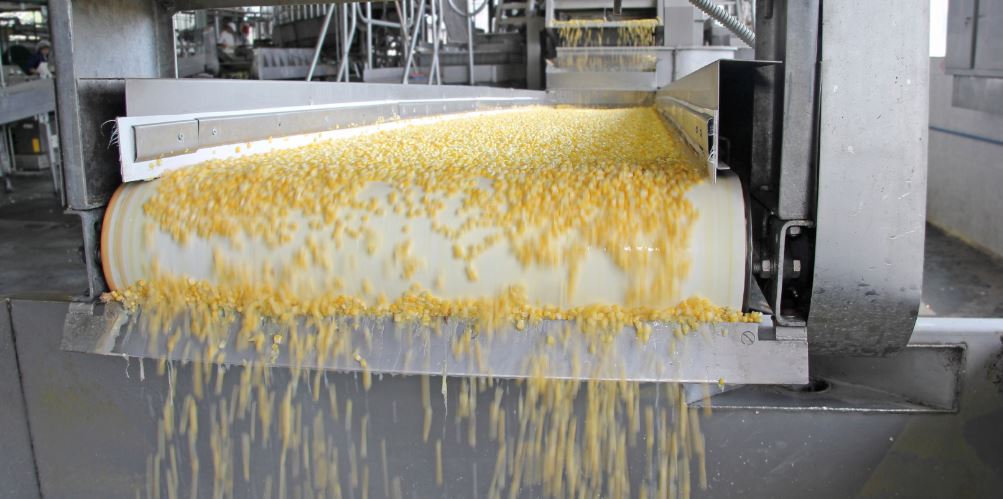Introduction
Private label specialty foods have become progressively prominent in the retail market. With consumers seeking unique and high-grade products, private label foods supply a tasty solution that pleases their taste buds and meets their expectations. In this article, we will explore the world of private label foods, from their production to their impact on both stores and consumers.
The Increase of Private Label Food Manufacturers Australia
Private tag food producers in Australia have experienced substantial development in recent times. These manufacturers specialize in creating private label food that deal with the certain needs and preferences of sellers and consumers. With a concentrate on top quality and advancement, they have actually sculpted a specific niche on their own in the affordable food industry.

Benefits of Private Label Food Products
Private label food supply many benefits for both retailers and consumers. Let's take a more detailed consider several of these benefits:
1. Quality Control
One of the major advantages of private label food is the control over quality. Stores can work very closely with private label food makers to make certain that the items meet their desired criteria. This permits stores to use top notch products that line up with their brand name image.
2. Customization
Private tag food manufacturing allows stores to personalize their products according to their target market's choices. Whether it's creating one-of-a-kind tastes or accommodating certain nutritional demands, exclusive tag foods offer adaptability in product development.
3. Competitive Pricing
Retailers can benefit from competitive prices by choosing private label foods. Because there are no private label food manufacturers australia middlemen involved, the price financial savings can be passed on to consumers, making these products much more inexpensive contrasted to national brands.

4. Brand Differentiation
Private label foods assist retailers separate themselves from competitors by providing exclusive items not found in other places. This exclusivity develops a feeling of loyalty among customers who proactively seek these specialty items.
5. Enhanced Earnings Margins
Private label food products often have higher profit margins for sellers contrasted to nationwide brands. With control over the whole production process, merchants can enhance costs and maximize their profits.
The Process of Private Label Food Manufacturing
Private label food production includes several essential actions that make sure the production of high-quality items. Let's delve into the process:
1. Research and Development (R&D)
The R&D stage is vital in private label food manufacturing. It includes market research to recognize consumer trends, tastes, and preferences. Suppliers function very closely with sellers to develop product ideas that line up with their brand and target market.
2. Dish Formulation
Once the idea is wrapped up, suppliers proceed to dish formulation. This step involves creating a distinct mix of ingredients and tastes that meet the wanted preference profile. Producers may also consider integrating LSI key words such as "personal label specialty foods" and "private label food producers Australia" to enhance search engine optimization.
3. Testing and Quality Assurance
Before automation begins, manufacturers carry out rigorous testing and quality assurance checks. This makes sure that the products meet all safety and security and high quality requirements established by regulatory bodies. Private label food suppliers focus on customer contentment by supplying items that are safe, scrumptious, and consistent.
4. Product packaging Design
Packaging plays a critical function secretive label foodstuff' success. Makers team up with retailers to make packaging that reflects the brand name's worths and interest consumers. Attractive layouts combined with helpful labels aid stand out on store shelves.
5. Manufacturing and Distribution
Once the packaging style is approved, producers start manufacturing widespread. They follow rigorous manufacturing methods to maintain uniformity in taste, texture, and total product quality.
Distribution of personal label foods is done with numerous networks like grocery stores, on the internet systems, or specialized shops. Merchants play a crucial role in guaranteeing these items reach their target audience effectively.
FAQs regarding Exclusive Label Foods
What are personal label foods? Private tag foods are products that are produced by a business available under a seller's brand. These products provide special flavors and customization options.
How can retailers gain from private label food manufacturing? Sellers can take advantage of private label food production by using unique items, controlling quality, and enjoying greater profit margins.
Are private label food of high quality? Yes, private label food makers prioritize quality control to ensure that their items fulfill the desired standards established by retailers.
Can stores tailor private label food products? Yes, stores have the versatility to tailor private label foodstuff according to their target audience's preferences.
Are exclusive label foods a lot more budget-friendly compared to national brands? Yes, exclusive tag foods are often valued competitively, making them extra inexpensive for consumers.
Where can customers locate private label foodstuff? Private label food products are available in numerous retail outlets such as supermarkets, online platforms, and specialty stores.
Conclusion
Private label foods have actually transformed the retail sector by providing a scrumptious solution for both retailers and consumers. With their focus on quality assurance, personalization choices, and competitive rates, these specialized products use a distinct experience that establishes them besides national brand names. Merchants can take advantage of the advantages of private label food manufacturing to distinguish themselves and increase their revenue margins. Consumers, on the various other hand, can enjoy premium products customized to their preferences. As the need for special and delicious food expands, personal label foods remain to grow on the market, dealing with the progressing tastes of consumers.